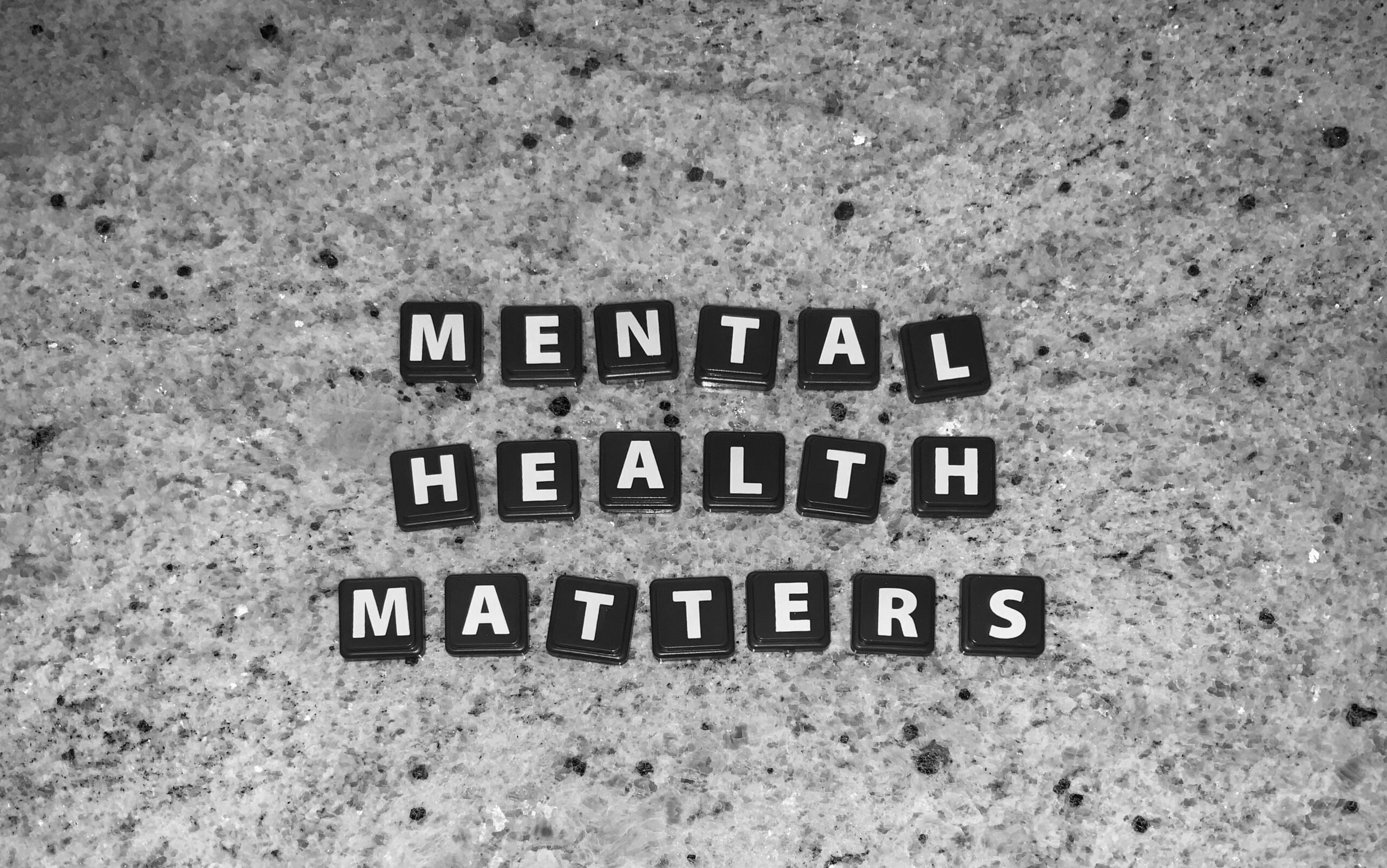Some artists opened up about their struggles. But most keep it to themselves. But did you know most rappers and musicans are mentally ill? Have borderline, are bipolair, suffer from depression and more. Even Drake has mental health problems but he not opened up about it. You just can it when you look at his Instagram. Some people can see and feel things and know people without actually knowing them. It is a part of being gifted. I always look through people. I feel their souls and spirits (founder and owner)
Music business has always been like this; wherever artists are portrayed as invincible, almost superhero like people who are immune to any human dilemmas. But here’s the reality check: there is no mask behind the Grammy awards, the number one albums, and packed concerts; it is people who battle with real-life challenges that thousands of others of us battle as well, if not in such a public way.
Today we’re debunking some myths of the mental health crisis of some popular hip-hop artists. The purpose was not to profit off their suffering for views (we are not that heartless), but to address what occurs when the melodies fade and the warfare commences.
The Ye Effect: Kanye West’s Bipolar Journey
West or ‘Ye, as he is now known has easily become one of the faces of mental issues in the hip-hop scene despite willingly engaging in it or not. In 2016, something that was diagnosed later as a mani depressive episode that caused his hospitalization occurred. In the long term, Ye had accepted his bipolar disorder, that he even used it in one of his albums’ title tracks namely “I Hate Being Bi-Polar But It’s Awesome” in his “Ye” album .
Specifically with Kanye’s situation, the entire problem has been displayed in such a public manner. One moment, he is producing mind-blowing albums with thought-provoking lyrics, the next he is giving rather provocative statements on Twitter or interviews. It has now become almost a part of him, especially in matters relating to the public domain.
Thus, the relation between Ye’s talent and his mental health issues serves as one of the peculiarities of his case. On his videos, he has confessed not to take any medication because he said it hinders his creativity or asplatzer mentioned it is a common trend for artists to develop mental disorders but ignore them purposely so that they continue to create.
However, let us not pre mince—first of all, behind these occurrences and pictures is a sick person with a particular illness that has a million people’s attention while people criticize and judge her. Both the natural and induced pressures are inevitable of which only few people can fathom the differential.
Eminem’s Dark Recovery Road
Marshall Mathers for the most part has never shied away from demons. Right from his first albums Eminem has been a reference to the issues of depression, substance abuse and even suicidal idealization. Coping with the death of his close friend, Proof, Eminem prohibited himself to drugs and turned to prescription pills that almost cost him his life.
What was even more inspiring in Eminem’s biography was his phase of the journey to getting back on his feet. In his albums “Relapse” and “Recovery”, he displays the effect that the substance abuse does to the user as well as the relapse process. In the song “Going Through Changes”, mostly he talks of even thinking of committing suicide during some time of his life.
Em’s disclosure of her mental health issues was greatly liberating, especially for a genre that associated frailty with the inability to cope. They proved that even the man, who is recognized as the greatest rapper by many people and one of the most commercially successful musicians ever was not protected from mental problems.
Nowadays, Eminem practices exercising, stays sober, but he still has no exception and makes songs for his mental health treatment. He teaches us that for him, the recovery is a lifelong process that does not end at a particular point in his life.
Lil Wayne: Seizures, Substance Abuse, and Suicidal Thoughts
Self admission of an attempt to commit suicide is something that young Lil Wayne ‘Dwayne Michael Carter Jr.’ revealed at a tender age of 12. During the recent interviews, Wayne claimed that it was not an accident that he shot Bush ship but a strategic move.
In addition to the childhood abuse Wayne, has had a myriad of health complications for instance, epileptic seizures, which has admitted him in hospitals several times. These medical emergencies have been further compounded by his histore of substance dependency such as codeine among others.
What stands out about Wayne is that he uses the instrument in question and music in general as a means of a confessional tool and a method to let go of all the pent-up emotions one experiences. On some of the tracks, such as “Let It All Work Out”, Ye straight up raps about his suicide attempt – “I pulled where my heart was pounding / I shot it, I woke up surrounded.”
However, Wayne remains an active figure of the hip-hop scene and remains to be an active musician despite his personal battle with mental health issues, so suffering from such issues should not hinder one from attaining his or her goals of success.
Chance The Rapper: Anxiety Behind the Smile
Chance could be loved for his cheerful demeanor that set him apart with his “3” hat and bow but that is not the real story. Since the release of Coloring Book, Chance has become more vocal about his struggle with those conditions.
More recently, in a 2018 interview, he stated that he is just now being exposed to anxiety. A relatively new topic and concept that am being introduced to at the moment is the black mental health. ‘’it wasn’t something that we discussed for a very long time.’’
One of the peculiarities of Chance’s story is the use of faith throughout the process of overcoming mental disorders. Instead of viewing these as two mutually exclusive events, he has incorporated them hence proving to the society that one could seek spiritual help as much as seek therapy.
His boldness has made such conversations commonplace especially in settings that have always associated or disregard mental health problems.
Kid Cudi: The Lonely Stoner Finds Peace
If there is one rapper who has not been shy about this issue, it has been Kid Cudi. From his first single, “Day ‘N Nite” in which he sang about being a “lonely stoner” to the recent album, Cudi has been open about his struggles with depression, anxiety, and substance abuse in his music.
In the same year of 2016, Cudi even checked himself into the rehabilitation center for the reasons of depression and suicidal thoughts which he shared on social accounts. It was revolutionary in the hip-hop genre and gave hope to many fans to seek help for the same.
Something that I have seen as beautiful in Cudi’s story is the change he underwent. It seems like his newer music and his more recent appearances are of a man who is struggling but is now equipped with the ways to cope with it. When they released the ‘Kids See Ghosts’ in 2018, the song is a good example where both artists are chiming in with their own pain.
Cudi’s big achievement can be summed up in how he made it cool to check in to therapy, to take pills, and to be hospitalized in a rap industry that has not embraced such themes.
J $tash: When We Lose the Battle
Still, one cannot draw a happy ending to every mental health story, and unfortunately, J $tash’s ending shows what an untreated mental illness looks like. The established Florida rapper whose actual name was Justin Joseph, passed on in January 2022 in what was believed to be a murder suicide in which he allegedly shot his girlfriend dead before turning the gun on himself.
Even if we will try to search the root of this tragedy, it will be hard to find but it remains clear on how crucial the mental health help is needed. J $tash displayed warning signs of his issues on social medial prior to his demise like many other individuals, yet those signs were not alarming enough to prevent such a calamity.
His story speaks to the need addressed in this conversation now, as much as it does to the artistic freedom or longevity of the hip hop artist: mental health means life and death in hip hop music.
Why This Conversation Matters
It can all be very entwining, in my opinion, yet such stories of these artists are hardly frivolous tabloids filled with idle gossips; they are, in fact, glimpses of an immense calamity. The survey conducted by the CDC states that suicide is the second cause of death in a quite young age of 10-34, and millions of people suffer from mental disorders, regardless of their status.
Some factors that make these hip-hop narratives of relevance are their contribution towards demystifying mental health, more specifically, among young male individuals and the coloured population where such discourses have not been encouraged.
Whether Kanye is discussing bipolar disorder or Kid Cudi addressing depression, they are not only telling people their stories and experiences, they are setting up spaces for fans to confront and manage it as well.
Overall, it can be said that the music industry has some roles to play in this case as well. The travel hours, social exposure, and the need to remain informative all add up to pressure that is not healthy for anyone’s mental stability. Vehicle owners and management entities must consider the well-being of artists while at the same time guaranteeing the sales of their products.
Ultimately, we listen to their songs, interact with their posts, and book ourselves for their concerts. It does not mean that we should suddenly expect perfect artists with no issues – instead, it reminds us of the fact that artists also need support in their creations and hence require a favorable environment in which they could thrive, not one that would take advantage of them.
Finiteness of the world and schizophrenia are as cuts across human frailty as is the ability to deal with basic realities of life. These girls need our empathy rather than our criticism because they possess tremendous talent as artists and they still live complicated, complicated private lives while being in the public eye.
So next time you’re vibing to these artists, remember—there’s often much more happening behind the music than we’ll ever fully know. And that’s all the more reason to listen closely, with both our ears and our hearts.

